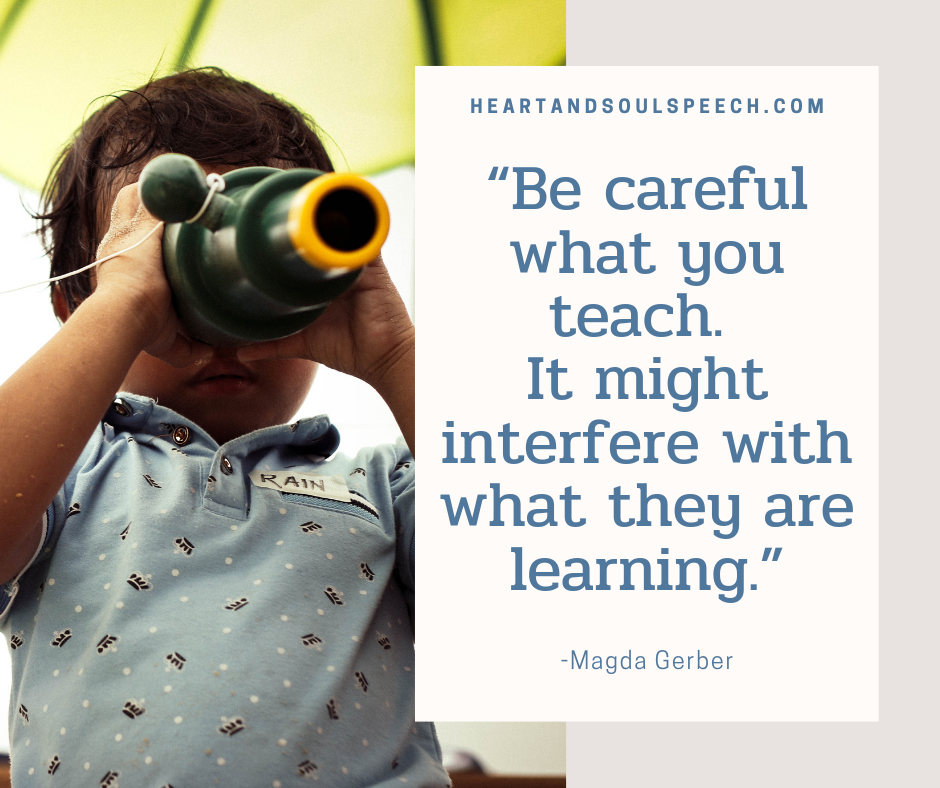I’ve come to absolutely love playing with my toddler. His little belly laugh is delightful and his imagination surprises me daily. But as a first-time parent, I thought play had to be extraordinary to be “right” and that allowing independent play was lazy on my part. Admittedly, I’m not super creative and don’t set aside time to plan ahead for play, so I often felt I was failing in the play category. Then, I found myself becoming irritated and guilty that I didn’t want to play all.the.time. like he did. I struggled not having the energy, time, or interest, and I felt terrible for saying no. Add the pressure of reading those “you only have 17 summers with your child” statements, and I checked out completely.
I have a friend who shared my same feelings when it came to play. Her younger daughter seemed dependent on having her there during play and would cry when left to play alone. It seemed like her daughter constantly needed to be entertained or guided in play. “I can’t even leave her alone to use the bathroom!” My friend was out of ideas (and patience) for encouraging independent play.
Parents and Play
After learning more about independent play and child-led learning, my understanding of play and parenting was transformed. Reading more research solidified my commitment to purposeful free play as the best way to nurture children’s development. Magically, my stress was removed and I was able to finally find joy, comfort, and peace in my role as a mother with a playful toddler.
Really, it’s great news for caregivers! Research supports children’s play and curiosity develops their social, emotional, and physical skills independently. We don’t have to focus on teaching young children skills in a structured or artificial way when they have freedom to play, explore, be involved in their daily routines, and foster a healthy relationship with their caregivers. Play is one area where we don’t have to step in…let that weight slide off your shoulders!
What is purposeful “free play?”
Free play, or independent play, is a child’s ability to explore and entertain themselves in their environment. Lisa Sunbury from Regarding Baby defines free play as “any behavior that is freely chosen, personally directed, and intrinsically motivated. Ideally, your child chooses when, with what, and how to play, and is allowed to play with as little interference or direction as possible (with consideration for the safety of self and others) for as long as possible.”
With this in mind, caregivers can feel good about taking a back seat to the child’s play. Sometimes it’s really difficult for me to feel content just observing and not interrupt my child. “Shouldn’t I be doing more? Am I being lazy?” However, when adults lead or even guide play for children, we often change the child’s direction, and therefore change their learning. It may not even look like play to an adult, but actually the child is working hard to explore and problem-solve through their play.
One step back (for parents), two steps forward (for children)
Caregivers often step in too often during play to teach the child skills. This often-well-intentioned move interrupts and interferes with the child’s learning. The other day I handed my toddler a beloved Mr. Potato Head toy and immediately began showing him where the pieces should go. Even when he tried to imitate me, I couldn’t help but correct him. “You’re funny! The nose goes here!” After about five minutes, I looked up to find him playing with my shoelaces and I was still putting on Potato Head pieces! Who was really playing here?! #Momfail

I left all the Potato Head pieces out, and a few hours later found my toddler playing in his own way. He was opening the back door on the Head and looking through the face holes like a telescope. Later, he put the hat on his own head, giggling when it fell off. Then, he found a piece of paper to fit in the shoe slot at the bottom of the Head. He was having a blast!
When caregivers take a step back, children will likely surprise you by taking their own steps forward. Creativity and imagination flourishes and a child can develop self-confidence in themselves to explore and learn.
So, what role do caregivers play…in play?
- A very interested and engaged observer
- Respectful and trusting of your child’s innate desire to learn and play
- Creates an inviting environment, a “yes” space for your child to explore and manipulate without your help or approval
- Responsive to a child’s attempts to communicate or eye contact
- Affirm you are watching and noticing what they are doing when needed
- Describing or commenting about what they are doing
- Gives full attention when needed or when parent desires, but still allows the child guide play
- Children learn from our responses. When caregivers feel guilted into play or are distracted, we may feel resentful or irritated. So, if the parent doesn’t want to play or can’t play in that moment we should be respectful and help our children understand. Play should be enjoyed.
- Provide opportunities to engage with nature and outdoors
- Believe our child is able to explore without our help, and sit back and watch play happen!
- Allow the child freedom to fix “problems” themselves. Let go of the urge to fix it quickly for them. Accept their frustration. “Uh oh, that looks hard! How do you think we should fix it? What would you do? Can you show me?”
- Limit screen time when possible.
Fostering Independent Play
If you feel like my friend and want to encourage independent play, here’s a few things to try:
- Make changes to playtime slowly. Give your child attention at first and then gradually back off. Don’t sneak away, but tell your child you will be in the other room and will be back in a few minutes. This comforts your child knowing where you are and that you will return soon.
- Make statements instead of questions or actions. “You knocked the tower down!” Don’t jump in to rebuild it- see what they do. This allows the child to continue experimenting with cause/effect and also know we are engaged.
- Let go of the pressure to entertain. Children can thrive when they are bored.
- Give the child something new (puzzle, blocks, bug net) without explanation and watch what they do!
- If your child is accustomed to you helping, you can say “I know I usually help, but I think you can try it yourself this time!” If the child requests help, respond with “What do you think I should do? Can you show me how?”
If you struggle with creating purposeful independent play, check out our favorite articles on play by Janet Lansbury: https://www.janetlansbury.com/tag/play/
This is Part 3 of our Play Series. Click the links to read Part 1: Why is Play Important? and Part 2:Stages of Play Development Part 4:Pretend Play
More Articles on Play:
https://www.regardingbaby.org/2011/11/02/what-is-play/
https://www.regardingbaby.org/2011/10/27/all-they-need-is-play/


3 Responses